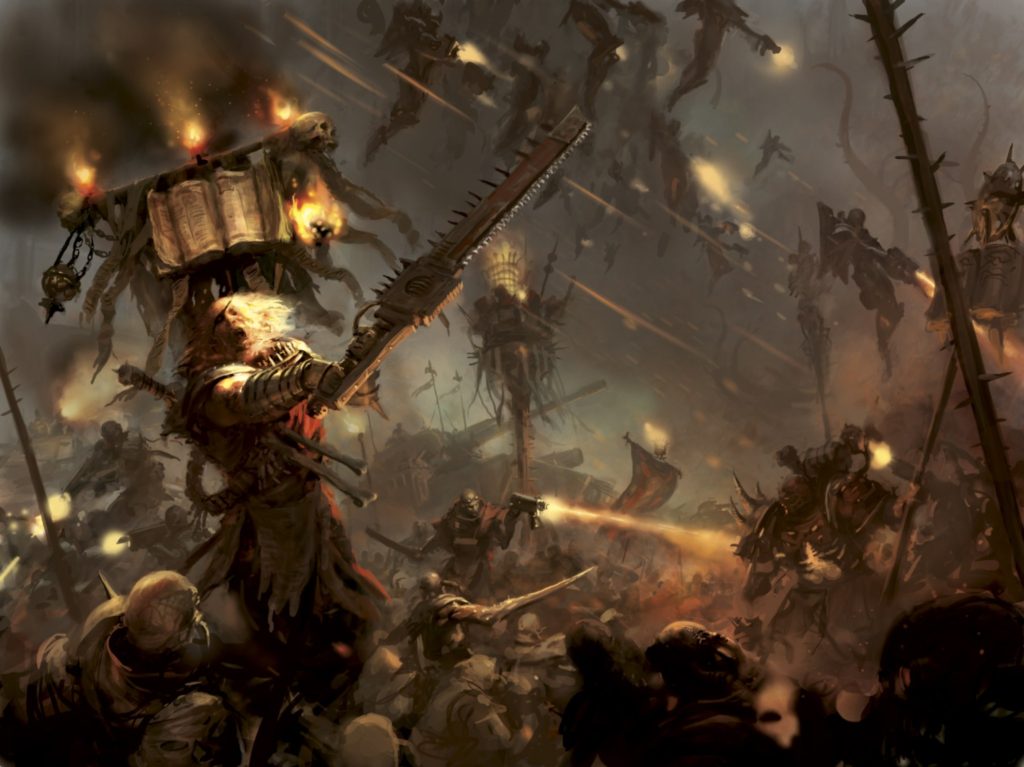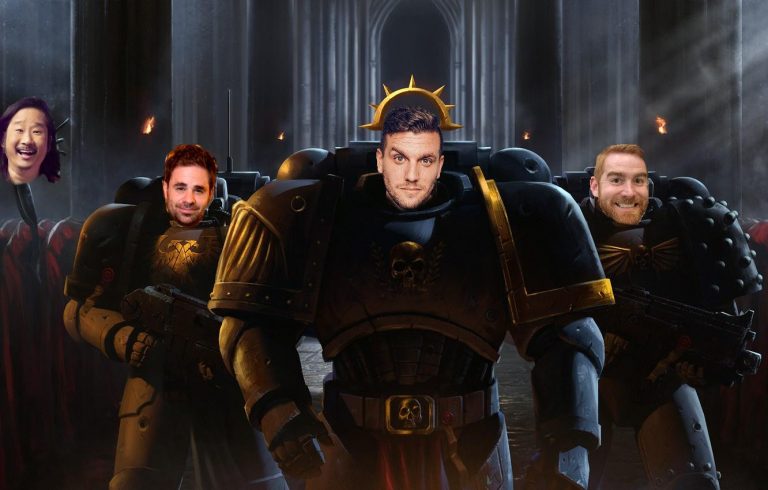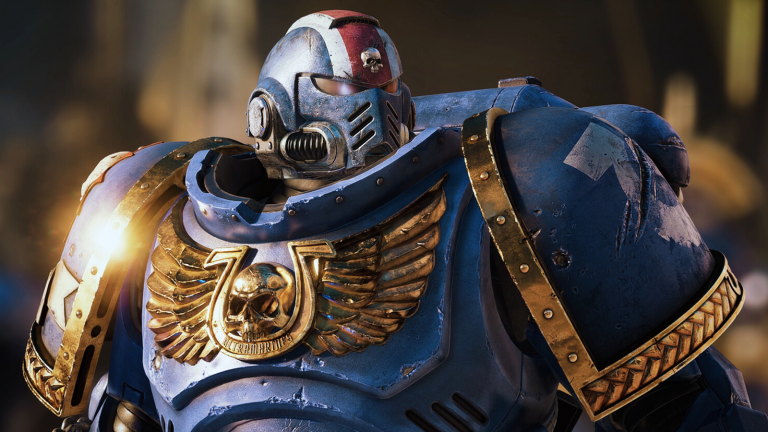Is Warhammer 40k About Religion?
If you’ve ever delved into the world of Warhammer 40k, you know that it’s an expansive and immersive universe filled with epic battles and intricate lore. But did you know that religion plays a significant role in this tabletop game? That’s right, Warhammer 40k isn’t just about futuristic warfare; it also explores the complex interplay between faith and power in its dystopian universe. So, buckle up and let’s dive into the fascinating question: Is Warhammer 40k about religion?
In the grim darkness of the 41st millennium, where humanity is locked in a never-ending struggle for survival, religion serves as a cornerstone of belief and control. The Warhammer 40k universe is brimming with diverse and fervent religious cults, each worshiping different gods or entities and interpreting the divine in their own unique ways. From the zealous servants of the God-Emperor of Mankind to the malevolent followers of the Chaos Gods, religion shapes the actions and motivations of both heroes and villains alike. But it’s not just about blind devotion; Warhammer 40k delves into the darker aspects of religious fanaticism, exploring the manipulation and corruption that can arise from extreme belief systems. So, strap in and prepare to uncover the intricate tapestry of religion in Warhammer 40k, where faith and power collide in a battle for the fate of the universe.

Is Warhammer 40k About Religion?
Warhammer 40k is a tabletop miniature wargame that has captured the imagination of millions of fans around the world. It is set in a dystopian future where humanity battles against various alien races and other threats. The game is known for its rich lore and intricate storytelling, but is Warhammer 40k about religion? Let’s delve deeper into the universe of Warhammer 40k to find out.
The Role of Religion in Warhammer 40k
In the grim darkness of the 41st millennium, religion plays a significant role in the lives of the people of the Imperium of Man. The Imperium is a vast human empire ruled by the God-Emperor of Mankind. The Emperor is revered as a divine figure and is worshipped as a deity by the citizens of the Imperium. The Imperial Cult, also known as the Ecclesiarchy, is the official state religion of the Imperium and has a strong influence over its subjects.
Religion in Warhammer 40k is not just a matter of belief, but also a tool used by the Imperium to maintain control over its population. The worship of the Emperor is enforced and heresy is ruthlessly suppressed. The Inquisition, an organization tasked with rooting out heresy and maintaining the purity of the Imperium, ensures that the citizens remain loyal to the Emperor and his teachings. However, the question of whether the Emperor is truly divine or just a powerful psyker is a matter of debate within the lore of Warhammer 40k.
The Role of Chaos
While the Imperium has its official religion, there are other forces at play in the Warhammer 40k universe. Chaos, a malevolent and chaotic force, seeks to corrupt and destroy the Imperium and all of humanity. Chaos is associated with the Warp, a parallel dimension of psychic energy that is inhabited by powerful entities known as Chaos Gods. These Chaos Gods thrive on emotions such as anger, lust, and despair, and use them to manipulate and corrupt the minds of mortals.
Religion and faith in Warhammer 40k are not limited to the worship of the Emperor. Chaos also has its followers, known as Chaos Cultists, who worship the Chaos Gods and seek to spread their influence. These cultists are often depicted as fanatical and willing to commit unspeakable acts in the name of their dark gods. The conflict between the forces of Chaos and the Imperium is a central theme in the lore of Warhammer 40k, highlighting the struggle between order and chaos, faith and heresy.
The Themes of Warhammer 40k
Warhammer 40k is a complex and multi-faceted universe that explores a wide range of themes, including religion. The depiction of religion in the game raises questions about the nature of faith, the power of belief, and the dangers of religious extremism. It explores the ways in which religion can be used as a tool for control and manipulation, but also how it can provide hope and a sense of purpose in a dark and unforgiving universe.
At its core, Warhammer 40k is a game about war and the struggle for survival. It presents a bleak and grim vision of the future, where humanity is constantly under threat and must fight to survive. The themes of sacrifice, heroism, and the struggle against overwhelming odds are central to the lore of Warhammer 40k. While religion is just one aspect of the universe, it adds depth and complexity to the narrative, allowing players and fans to explore the moral and philosophical implications of faith in a dystopian setting.
The Influence of Real-World Religions
Warhammer 40k draws inspiration from a variety of real-world religions and mythologies. The Imperial Cult, for example, shares similarities with organized religions such as Christianity and Catholicism, with its hierarchical structure and emphasis on faith and devotion. The iconography and symbolism used in the game also draw on religious imagery from various cultures and time periods, adding to the immersive and richly detailed world of Warhammer 40k.
However, it is important to note that Warhammer 40k is a work of fiction and should be interpreted as such. While it explores themes and ideas related to religion, it does not promote or endorse any specific religious beliefs or practices. The religious elements in Warhammer 40k are part of the game’s lore and world-building, designed to create a compelling and immersive experience for players and fans.
In conclusion, religion is indeed a significant aspect of the Warhammer 40k universe. The worship of the Emperor and the conflict with the forces of Chaos provide a backdrop for the game’s narrative and explore themes of faith, control, and the struggle for survival. However, it is important to approach these themes with an understanding that Warhammer 40k is a work of fiction and should be enjoyed as such.
Key Takeaways: Is Warhammer 40k about religion?
- Warhammer 40k is a fictional sci-fi universe created by Games Workshop.
- Religion plays a significant role in the Warhammer 40k lore and storyline.
- The Imperium of Man, the main faction in Warhammer 40k, is heavily influenced by religious beliefs.
- There are various fictional religions in Warhammer 40k, such as the Ecclesiarchy and the Chaos Gods.
- Religion in Warhammer 40k often serves as a tool for control and manipulation, reflecting themes of power and corruption.
Frequently Asked Questions
Warhammer 40k is a popular tabletop game that has captured the imagination of millions of players worldwide. It is known for its rich lore and expansive universe. One of the recurring themes in Warhammer 40k is religion, which plays a significant role in shaping the story and the factions within the game. In this article, we will explore the connection between Warhammer 40k and religion.
1. What role does religion play in Warhammer 40k?
Religion is a central aspect of the Warhammer 40k universe. The game is set in a dystopian future where humanity is ruled by a theocratic regime known as the Imperium of Man. The Emperor of Mankind is revered as a god and worshipped by the masses. The Imperium’s religion, known as the Imperial Cult, serves as a tool for controlling the populace and maintaining order.
Additionally, various alien races in Warhammer 40k have their own religious beliefs. The Eldar, for example, follow a pantheon of gods, while the Orks have a primitive belief system centered around their war god, Gork and Mork. Religion in Warhammer 40k often serves as a source of conflict and drives the motivations of different factions.
2. Are the religious themes in Warhammer 40k based on real-world religions?
While Warhammer 40k draws inspiration from various real-world mythologies and religious traditions, it is important to note that the game’s religious themes are primarily fictional and unique to its own universe. The Imperial Cult, for instance, is a blend of elements from Christianity, Catholicism, and other religious institutions, but it is not an exact replica of any real-world religion.
Warhammer 40k uses religion as a narrative device to explore concepts such as fanaticism, faith, and the corrupting influence of power. It offers a fictionalized reflection on the role of religion in society and its potential consequences.
3. Can players incorporate religious themes into their Warhammer 40k games?
Warhammer 40k allows players to create their own narratives and customize their armies to reflect their personal preferences. While the game provides a rich backdrop of religious themes, it is up to the players to decide how much emphasis they want to place on these aspects in their games.
Some players may choose to incorporate religious elements into their army’s backstory or paint schemes, while others may focus more on the strategic aspects of the game. Warhammer 40k offers a flexible and creative space for players to express themselves and explore different themes.
4. How does the concept of religion affect the gameplay in Warhammer 40k?
Religion in Warhammer 40k primarily influences the lore and storytelling aspects of the game rather than directly impacting gameplay mechanics. The various factions and their religious beliefs provide a rich tapestry of narratives and motivations for players to explore.
However, it is important to note that Warhammer 40k is primarily a strategy game, and victory is often determined by tactical decisions rather than religious affiliations. While religious themes may shape the context in which battles take place, they do not necessarily dictate the outcome of the game.
5. Are there any criticisms of the portrayal of religion in Warhammer 40k?
As with any fictional universe, there have been criticisms and debates regarding the portrayal of religion in Warhammer 40k. Some argue that the game’s depiction of religious fanaticism and the use of religion as a tool for control may perpetuate negative stereotypes and reinforce harmful narratives.
On the other hand, many fans appreciate the nuanced approach to religion in Warhammer 40k, seeing it as a reflection of the complexities and contradictions inherent in real-world religious systems. The game encourages critical thinking and exploration of moral and ethical dilemmas, allowing players to engage with these themes in a thought-provoking manner.
Was The Imperium’s BIBLE Written By The DEVIL? | 40k Lore.
Final Thought: Warhammer 40k – A Battle of Religion and Science Fiction
When it comes to Warhammer 40k, it’s clear that religion plays a significant role in shaping the universe and its various factions. While the game is primarily known for its epic battles and intricate lore, it’s impossible to ignore the underlying theme of religion that permeates throughout. The game presents a future where religious beliefs have become intertwined with science fiction, creating a unique and captivating setting for players and fans alike.
One of the standout aspects of Warhammer 40k is the diverse range of religious beliefs portrayed in the game. From the zealous devotion of the Imperium of Man to the mystical spirituality of the Eldar and the chaotic worship of the Chaos Gods, religion is a driving force behind the actions and motivations of the different factions. This fusion of religion and science fiction adds depth and complexity to the narrative, allowing players to explore philosophical and existential questions within the context of a war-torn galaxy.
But Warhammer 40k is not just about religion; it also reflects the darker side of fanaticism and the consequences of blind faith. The game serves as a cautionary tale, highlighting the dangers of religious extremism and the manipulation of belief systems for political gain. By exploring these themes, Warhammer 40k prompts players and fans to reflect on the role of religion in society and the potential consequences of unchecked devotion.
In conclusion, Warhammer 40k is a masterful blend of religion and science fiction, offering a thought-provoking and immersive experience for players and fans. The game’s exploration of different religious beliefs and their impact on the universe adds an extra layer of depth to the already rich lore. Whether you’re drawn to the epic battles or the philosophical undertones, Warhammer 40k offers a captivating journey into a world where religion and science fiction collide.






